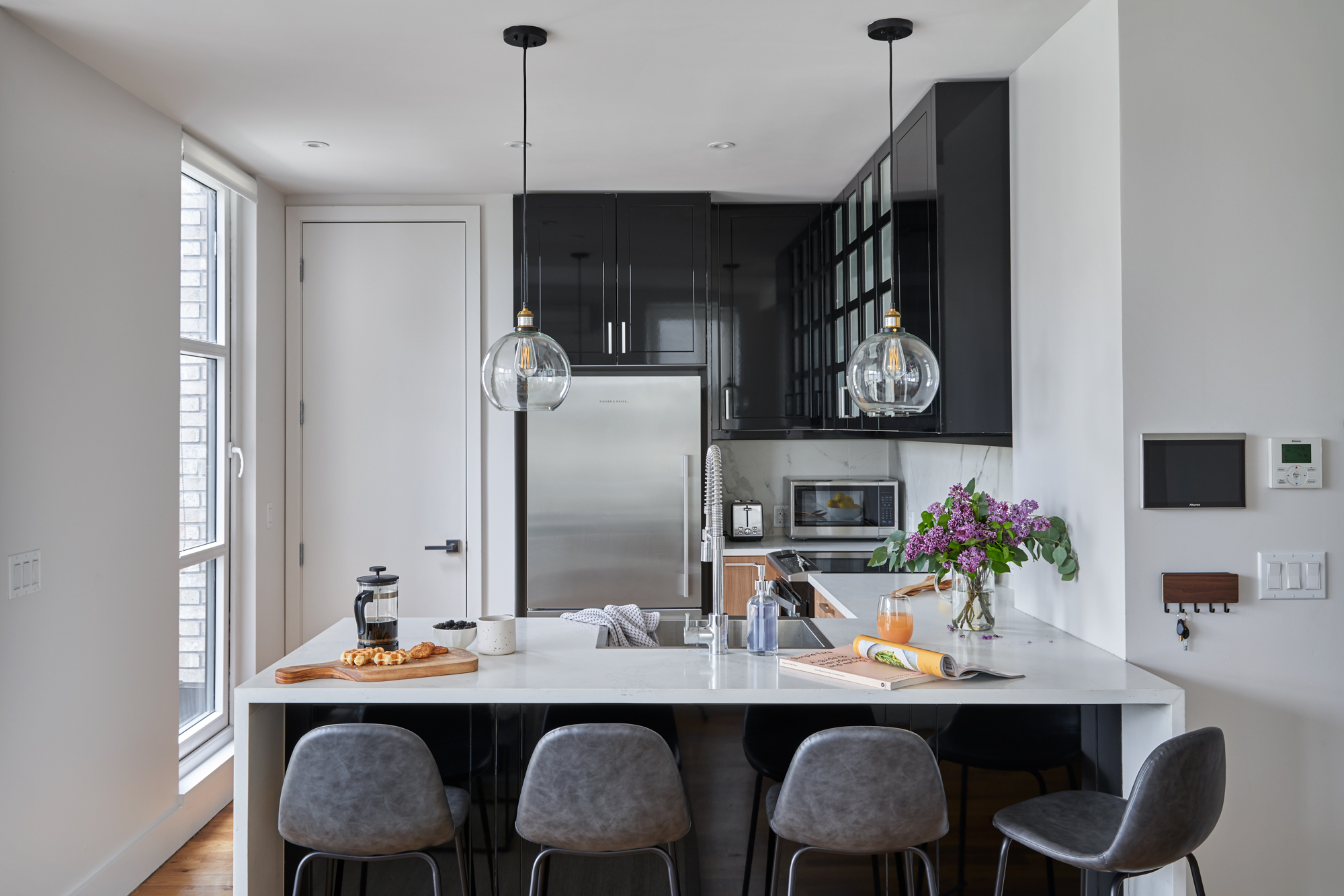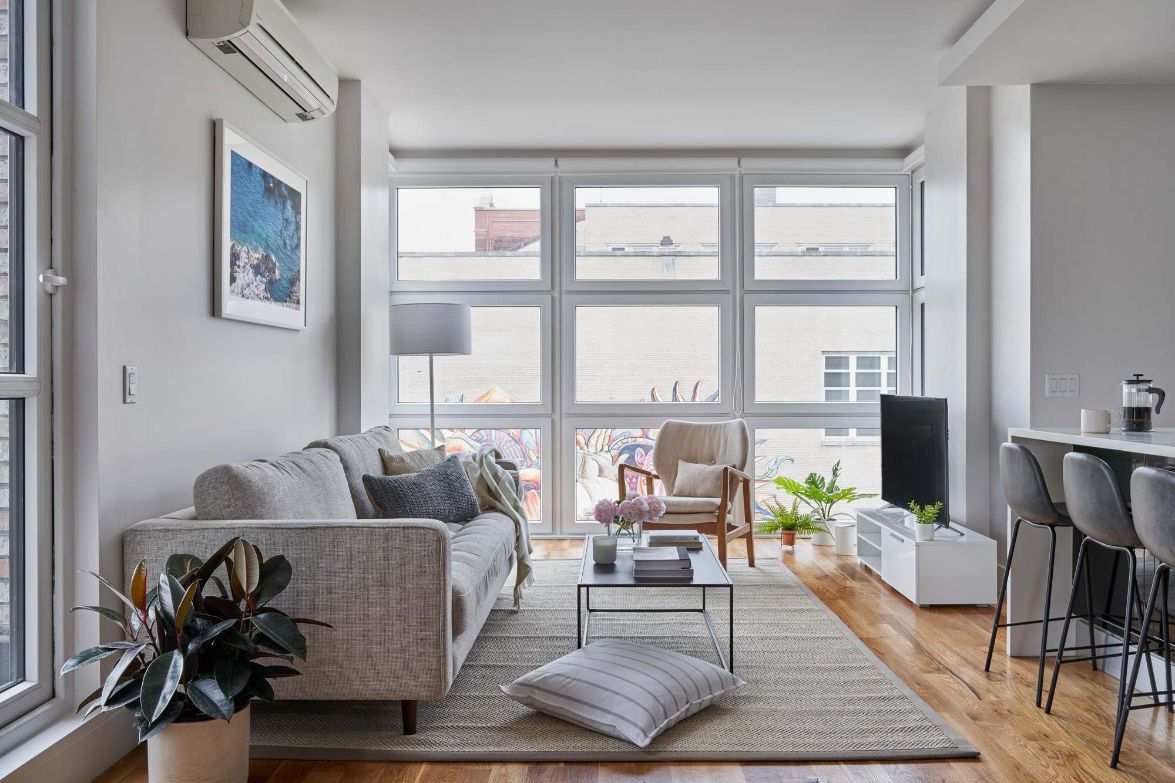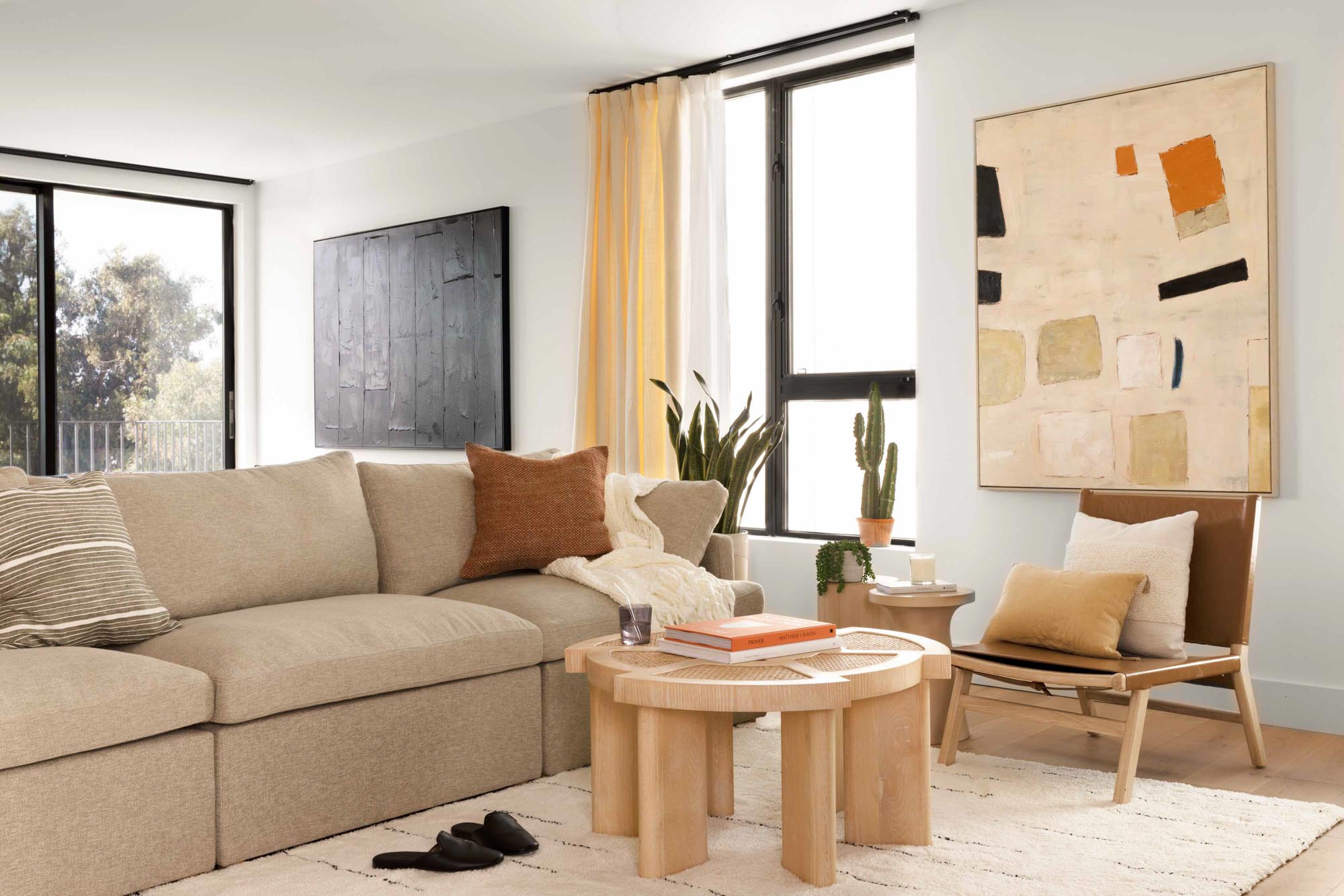If you’re leaving behind an old residence, whether because you’ve broken a lease or have simply set your sights on a more lavish living arrangement, you might find yourself browsing myriad rental postings with different names associated. As you search for a marvelous place to live, it helps to understand the nuances of all your options, including condo and apartment differences.
Condos (short for condominiums) are multi-occupancy buildings that operate under a shared residents’ association but in which each unit is owned by an individual. Apartments, on the other hand, are units within shared buildings that are rented or leased. The size, amenities, and monthly cost can be comparable, but there are several key variations that will help you answer the question at the top of your mind:
What’s the difference between a condo and an apartment?

#1 Ownership
As previously mentioned, the primary distinction between a condo and an apartment is the structure of and regulations surrounding ownership. We’ll provide a more in-depth explanation of how these two living units differ:
- An apartment building is a multi-unit residence, in which you lease an individual unit from the landlord – this could be an individual owner or a management company. Landlords, not apartment tenants, are responsible for property taxes and other necessary payments.
- A condominium is another multi-unit residence, but in this case, each individual occupant becomes the owner of their unit, purchasing from a previous tenant or the original developers. The resident, who is also the owner, of the condominium is responsible for its property taxes and so on.
Apartment buildings typically have one sole proprietor, whereas condominiums are collectively owned by a group of tenants. Subsequently, this means that most apartment inhabitants are provided with the same benefits and rental rates as those in their neighboring units. And while it is possible to purchase and own an individual apartment unit, it’s much less common than the rental model.
Alternatively, condominium owner purchases their new home just like they would a house or any other type of dwelling. As the owner, the resident accumulates equity, must pay monthly dues to their homeowner’s association or HOA, and is responsible for all interior care.
#2 Maintenance
As the owner of a condominium, you’ll be responsible for maintaining a safe, functional home and facilitating any necessary repairs – as well as any optional home improvement projects.
Both the cost and organization of maintenance fall to the owner of the unit, which accounts for the differences in responsibility:
- At an apartment, the landlord or owner must attend to any structural damage, essential repairs, and maintenance requests, such as changing an out-of-reach lightbulb or smoke detector batteries or unclogging a drain. If you notice any issue with the interior of your apartment, your first course of action would be to call or email your landlord or building super.
- At a condo, the owner – who is also the tenant – is responsible for the unit’s upkeep. However, this does not apply to maintenance difficulties in shared spaces or the building’s exterior, wherein the homeowner’s association has control.
While apartment living removes the obligation of habitual maintenance, it also poses limitations on your ability to decorate, renovate, or otherwise improve your living space. Without ownership over the space, you may be unable to paint, hang objects on your walls, or replace an appliance.
Thankfully, the peace of mind and lack of financial responsibility quickly make up for the limited design options, especially if you’re renting a beautifully furnished unit from Common. Beyond that, you’ll have a qualified property services team responding to your maintenance requests in 24 hours or less, plus professional cleaning services, so you can bypass the difficulties of unresponsive or apathetic landlords.
#3 Fees
Signing a lease for an apartment and purchasing a condo unit both create financial responsibilities. Regardless of which residence type you choose, you’ll typically face upfront fees and recurring payments – the exact amounts and schedules differ:
- Apartments – When signing a fixed or month to month rental agreement, you’ll likely be asked to pay the first month’s rent and a tenancy deposit equivalent to 4 or 5 weeks of rent (similar to a damage deposit and repayable at the end of your lease). Before signing a lease agreement, you may also have to pay a holding deposit to a letting agent or company and certain one-off fees like a pet or application fee. All in all, you might need as much as 3x your monthly rent or even a touch higher. After that, you’ll pay static monthly rent payments and utility bills, in most cases.
- Condos – Purchasing a condo involves the many financial obligations of any homeownership: down payment, closing costs, inspections, and more. Once you purchase an ace condo, you’ll be responsible for any mortgage payments rather than rent, as well as property taxes, insurance, unit maintenance costs, more extensive utility costs, and HOA dues or fees. Typically, these monthly or yearly fees cover the expenses of maintaining the building’s shared amenities, such as lobbies, patios, landscaping, swimming pools, and elevators. Altogether, the many fees associated with condo living can add up quite quickly.
Your pet charge or deposit, if applicable, may vary in price but is intended to cover any additional maintenance costs associated with the wear and tear of living with a domestic animal. As for your application fee, this small upfront payment typically covers:
- A credit check
- A tenant eviction check
- A criminal record check
- Administrative costs associated with verifying relevant records
Some leasing fees may be negotiable but many are standard across rental properties. Whether you’re moving into a wicked apartment or quality condominium, you’ll want to inquire upfront about any potentially unknown costs associated with your new pad.
#4 Policy enforcement
One of the questions to ask when renting an apartment or buying a condo is “who enforces the living policies?” Both apartments and condominiums have a set of rules and regulations, generally governing tenant behavior, home improvement projects, sub-leasing, and more.
The differences center around who enforces the regulations and how much they have control over:
- In apartments, the landlord addresses complaints and enforces the policies laid out in your lease agreement. Typically, each unit is subject to the same rules, including noise limitations, pet and visitor policies, off-limits areas, safety hazards, structural changes, and more.
- In condos, the head of the HOA will enforce similar regulations, though they’re usually less restrictive than those applied to apartment dwellers. While most associations can’t govern how you alter your unit’s interior, they may enforce rules regarding exterior modifications, landscaping responsibilities, shared space usage, and so on.
To avoid losing your holding or security deposit, risking eviction, or encountering dodgy glances from members of your HOA, ensure you review the regulations carefully and understand what they mean in layman’s terms.
#5 Upgrades
Because condominium owners can freely plan remodeling and renovation projects, you may be more likely to find modernized kitchens, bathrooms, fixtures, and technology. Without individual owners to make improvements as they see fit, apartment buildings may not undergo as many renovations. However, many management companies are committed to continuous improvement and beautification – it all depends on who you rent from.
While brand-new condominiums are often perfectly uniform in their interior design and fixture selection, the individual units begin to diverge more and more as time goes on and new owners pass through the units. This could be a pro or con, depending on the tastes and preferences of the previous owner.
#6 Amenities
All apartments will come with some number of amenities; however, the amount and quality can differ greatly depending on the price point. Some common amenities include:
- On-site laundry
- Free parking
- Gym access
- Community room
- Full-service concierge
In addition to many of the amenities above, condos are more likely to tack on exciting extra features, such as:
- Playground
- Car wash
- Pet area with services like dog washing
- Park or green space
- Swimming pool
While some high-end apartments may provide these facilities, they’re more prevalent in condominiums, typically due to the HOA fees which can fund more luxurious and desirable building features.
Should I consider a condo or an apartment?

A condo tends to present an accessible entry point into homeownership, and as a homeowner, you’ll accumulate wealth and benefit from the associated tax advantages. Beyond that, condominiums provide benefits such as:
- Increased freedom – Your condo, your way. As a unit owner, you can feel empowered to adjust and improve your space in whichever way you see fit.
- Stability – Unlike an apartment, a condominium offers heightened security. However, owning a unit is also more of a commitment than renting an apartment.
- Less maintenance than a home – Exterior maintenance and landscaping is managed by the HOA and shared between the condominium owners, removing some of the responsibility from your shoulders.
An apartment is an excellent option if you don’t wish to assume the responsibilities and expenses of homeownership. Renting an apartment comes with the following incentives:
- Increased freedom – Apartments offer freedom of movement rather than freedom to redecorate. For anyone with plans to relocate often or a consistent streak of traveling abroad, apartment living is a suitable alternative to settling down.
- Proximity – Apartment buildings are often situated in or near urban areas, providing convenient access to restaurants, shopping, and other amenities.
- Low or no maintenance costs – Generally, your landlord is responsible for maintaining the property throughout your rental period, removing the financial and time cost of facilitating the repairs yourself.
Find freedom in coliving or private apartments with Common

Take all the typical benefits of living in an apartment and add an extensive list of features, amenities, and flexible policies with Common’s private apartments and coliving units. Have more questions about renting an apartment? Head to our blog for our expert tips and tricks. And if you’re looking for your own apartment, you can explore our network of renter-friendly units with awesome amenities in cities across the country!
For the best of convenient, attainable housing, no matter the building type, look for Common apartments and coliving spaces near you.

